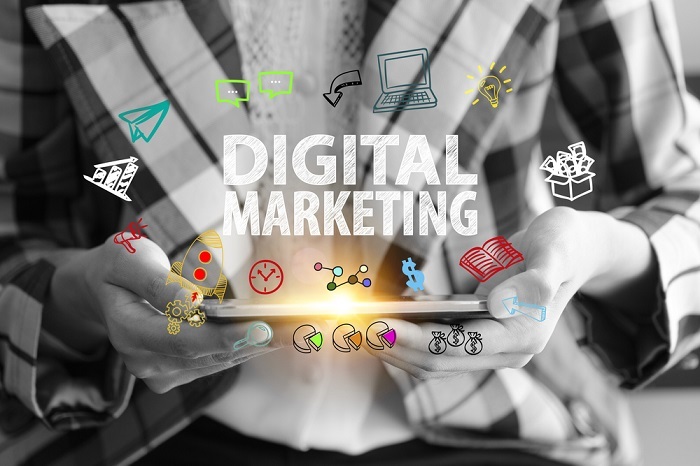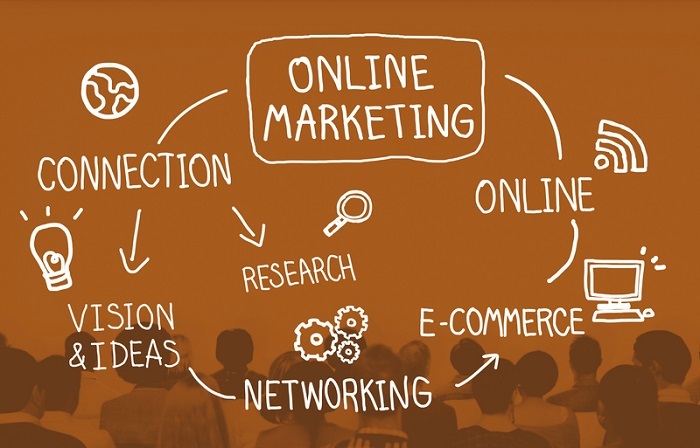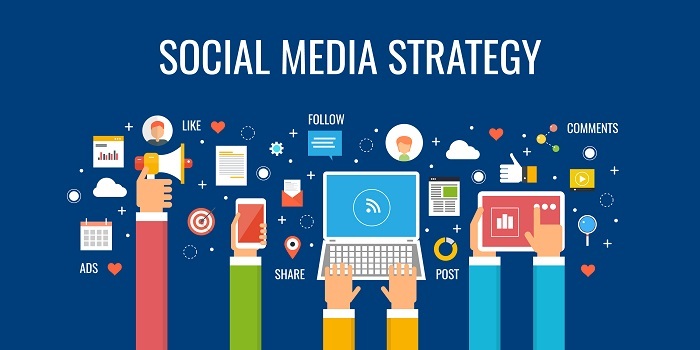
 Data Structure
Data Structure Networking
Networking RDBMS
RDBMS Operating System
Operating System Java
Java MS Excel
MS Excel iOS
iOS HTML
HTML CSS
CSS Android
Android Python
Python C Programming
C Programming C++
C++ C#
C# MongoDB
MongoDB MySQL
MySQL Javascript
Javascript PHP
PHP
- Selected Reading
- UPSC IAS Exams Notes
- Developer's Best Practices
- Questions and Answers
- Effective Resume Writing
- HR Interview Questions
- Computer Glossary
- Who is Who
What Are the Processes Involved in Digital Marketing?
Using digital technologies, including the web, social media, smartphones, browsers, and other digital channels, digital marketing is the act of advertising and selling goods or services. To contact and interact with target consumers, increase brand recognition, create leads, and encourage conversions (from visitors to potential buyers), it uses a variety of methods and approaches.

Importance of Digital Marketing

Wide Reach
Cost Effective
Targeted Advertisement
Competitive Advantages
Statistical Real-Time Data
Significant Processes Involved in Digital Marketing
Content Creation
Market Analysis
Search Engine Optimisation
Pay-Per-Click (PPC)
Social Media Marketing
Email Marketing
Content Creation ? Each effective digital marketing plan must include creating high-quality content. Your brand may become recognized as a leading voice in your sector by producing high-quality content that draws in and engages your target audience and eventually leads to conversions.
Here are some exquisite ways you can create Quality Content
Having knowledge of your target audience ? Extracting information about the characteristics, interests, behaviors, and common issues of your audience by conducting market research and using this data to produce content that speaks to their interests and needs increases the traffic and hence skyrockets the sales of the company.
Writing fascinating headlines ? Your headlines will be seen by your audience first, so make sure they're engaging and useful. Make your titles more compelling by including action phrases and numbers.
Using appropriate visuals ? Your information may become more interesting and memorable with visuals like pictures, videos, and statistics. For clarity use images to illustrate your ideas.

Market Research ? Market research is understanding the behavior of clients, trends that are being followed, and potential risks that the market carries and minimizing them in order to grow or develop your business.
Reasons why Market Research is so crucial in Digital Marketing
Identifying the market trend and opportunities ? You may find new trends and business prospects in your sector by doing market research. You may adapt your marketing plan to stay ahead of your rivals and satisfy the growing demands of your audience by keeping up with these trends.
Finding appropriate keywords and search terms ? You may raise your website's ranking in search engines and increase website traffic by including these keywords in your website and content.
Understanding the client's behavior ? Understanding your target public's demographics, interests, habits, and preferences are made easier with the help of market research.

Pay-Per-Click (PPC) ? When a user clicks on one of an advertiser's advertisements online, the advertiser gets charged (Pay-Per-Click, or PPC) advertising. The term "pay-per-click" refers to the advertising approach where advertisers only charge for their advertisements when users click on them. PPC advertising may be utilized to bring in targeted visitors, create leads, and boost conversion rates. It is a very precise kind of advertising since companies can monitor the effectiveness of their ads in real time and modify their campaigns as necessary to maximize their results.
Benefits of PPC (Pay-Per-Click)
Cost-effective ? PPC advertising is an economical sort of advertising since you only pay when a user clicks on your ad. To keep your expenditures in check, you may also establish a set daily or monthly budget.
Immediate results ? PPC marketing has the ability to produce quick results. Within minutes of your campaign's launch, your advertising might start to show up on social media platforms or search engine results pages (SERP).
Highly targeted ? By targeting your advertisements to particular keywords, categories, places, and devices with PPC advertising, you can make sure that the correct people see your ads at the appropriate moment.

Social Media Marketing ? With more than 3.6 billion users globally, social media has emerged as a key element of digital marketing. Digital marketing relies heavily on social media sites like Facebook, Twitter, and Instagram. Having social media profiles, publishing frequent updates, and interacting with followers are all required for this.
Importance of Social Media in Digital Marketing
Reaches a large audience ? There are 1.98 billion active Facebook users and active Instagram users are beyond 1.2 billion which provides a larger audience to target.
Increases brand awareness ? Businesses may increase their brand recognition and attract new clients by developing a strong social media presence. Using social media influencers, communicating with followers, and sharing interesting material may all help increase company visibility.

Search Engine Optimization (SEO) ? The process of improving a website to increase its exposure and position in search engine results from sites is known as SEO (Search Engine Optimization) (SERPs). In order to make a website more search engine friendly and pertinent to consumers' search queries, SEO focuses on improving its content, structure, and performance.
Reasons why SEO (Search Engine Optimisation) is so crucial
Improved exposure and traffic ? SEO may help a website become more visible and rank higher in search engine results in pages. This can result in more search engine traffic and that too free.
Long-term advantages ? SEO is a long-lasting approach that can help a website in the long run. SEO initiatives may continue to drive traffic and lead to a website over time, but it's not like PPC advertising, which ends after the budget is spent.
Competitive advantage ? Businesses may get an advantage over their rivals who are not investing in SEO by optimizing a website for search engines. This may help a brand become more visible, draw in more clients, and boost sales.

Conclusion
Digital marketing is a diverse process that uses a range of tools and methods to advertise a company on the internet. Businesses may utilize digital marketing to attract a bigger audience, improve brand awareness, and generate more income by developing high-quality content, utilizing social media, and using PPC advertising. However, in order to succeed in digital marketing, it's crucial to carry out market research, identify your target audience, and create a solid digital marketing plan that complements your company's objectives. You can keep one step ahead of the competition and find long-term success in digital marketing by sticking to best practices and modifying your strategy on a regular basis and keep progressing in business.

